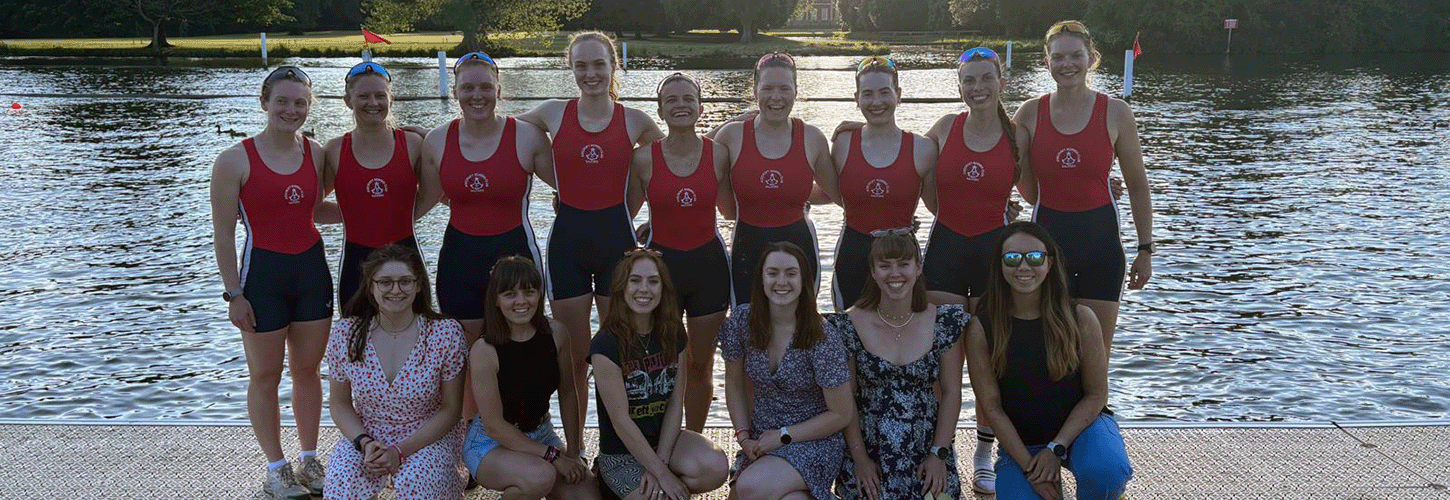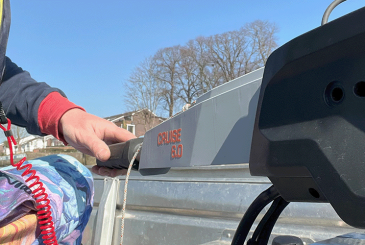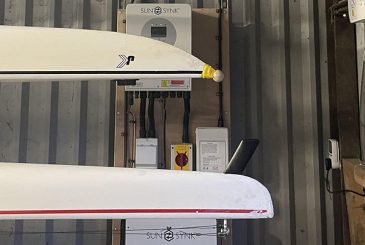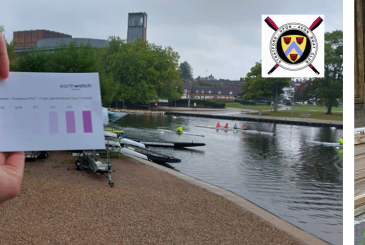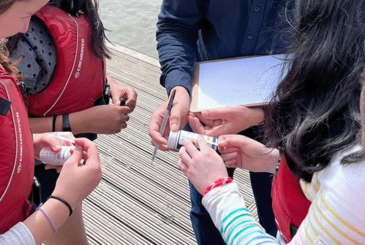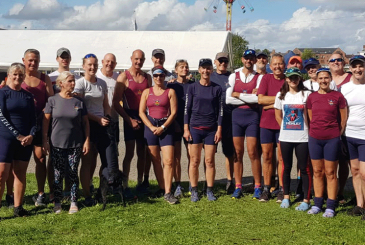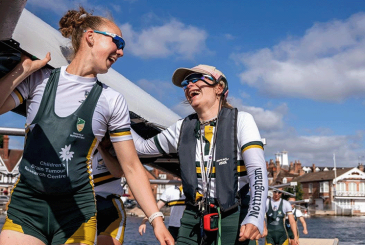Alex McMullen from JRN speaks to senior athletes based across the country who graduated in the last two years and have successfully transferred from the academic to club scene.
Students are catching the rowing bug in big numbers. So how can open rowing clubs – and particularly those outside the top few – encourage this wealth of talent to join them and keep rowing after graduation? The good news is that year after year, a wide regional variety of clubs are advancing through the rounds on the most prestigious of stages at Henley Women’s Regatta and Henley Royal Regatta – a clear indicator that these clubs are continually getting their recruitment right.
Give athletes a taste of what’s to come
When we consider parting with our hard-earned cash on a new purchase, we all like to try before we buy. Committing to a new rowing club is no different. For Miguel Eduardo Lopez Dittmar, who left Lancaster University last summer, the option to do this helped him decide to join Leeds RC. “Over the summer, there are usually a few graduates who go out on the water [at Leeds] for a session or two before deciding to join the club,” he explained. “I did exactly that, and instantly got hooked back into rowing after pondering whether I should continue or not.”
Some clubs go one step further and structured taster sessions as a more formal trial period. “Once I had sought out the club, they invited me along to a pre-season meeting for the women’s squad. They explained how they trained and their racing expectations,” agreed Georgie Pearson of Agecroft RC. “We were then given a month of outings to decide whether we wanted to join the club and pay membership, That sealed the deal for me!” By empowering athletes to make their own judgement call after a trial period, clubs increase the overall efficiency and effectiveness of their recruitment process. Time is our most precious resource, after all.
Be flexible with your schedule
Speaking of time, it’s something we always seem to need more of these days. Trying to manage a full-time job alongside any hobbies – especially competitive rowing – can feel like an extreme sport in itself. As such, clubs supporting their senior athletes with a flexible approach to training is key. Victoria Lacey of Vesta RC has appreciated this. “I balance rowing with a full-time job in the Met Police, but thankfully the timetable at Vesta is very accommodating,” she highlighted. “Once you’re selected, a competitive crew can re-work timings based on everyone’s availability. The club does a great job at supporting us through high-volume training blocks alongside our work schedules.”
This flexibility encourages athletes to keep striving for success, as they can feel more empowered by their own training program. Genevieve Wilks of St Andrew BC in Edinburgh agreed, explaining “Our coach stresses that hitting every workout every week just isn’t always conducive with creating a positive and supportive training environment where rowing acts as an outlet for the stresses of a full time job.”
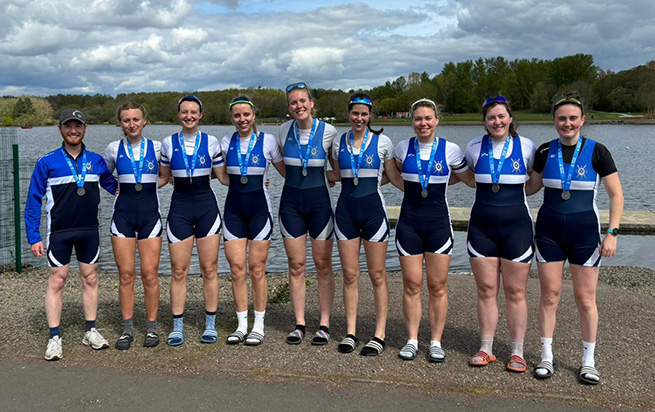
Not only does a club’s flexible approach to scheduling attract athletes in the first place, it also retains them for the long-term. Sophie Raine, also of Agecroft RC, is hungry for more after successfully balancing her work with Henley campaigns. “I’ve been working a full time job this past year, and I’m starting a masters in Manchester this September and planning on staying at Agecroft,” she outlined. “Pretty much every other senior rower is in the same boat – pardon the pun – so the training expectations are always super reasonable and work for everyone. At the end of the day it’s a hobby, no one’s expecting you to be training multiple times a day [compared to university] and it’s nice to know that.”
Harness the power of social media
It would be remiss not to mention how influential social media has become in rowing, and sport in general. And this has accelerated in the last decade. Therefore, any community rowing club that is not advertising through at least an Instagram or Facebook page is missing a trick and depriving themselves of a source of fresh talent.
Genevieve and Georgie emphasised that using social media as a tool to recruit athletes is more important than any other strategy for their clubs. “I think advertising the club’s results and reputation is good, of course. But also advertising the social side of the club and the flexibility of training is even better. A social media presence really affirms that,” Georgie said. This is particularly important when there are multiple rowing clubs in the area competing for talent and graduates are trying to choose the right rowing club for them.
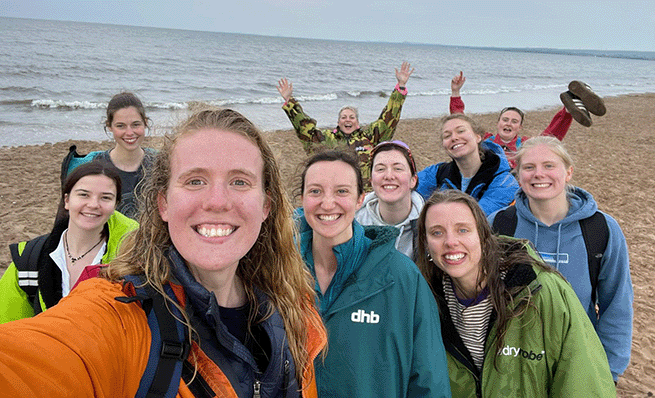
Leeds RC’s Miguel agreed, and added, “I think reaching out to graduating students on social media to join clubs could help make them even more successful. Some of my uni friends have been very surprised to discover it’s possible to row at a pretty high level outside London.”
Get boots on the ground at key events
Lastly, all athletes highlighted just how critical it is to have physical recruitment stands at key events. “Whether it’s at BUCS Regatta, Henley, or more local regattas, having a presence can be a real game changer. Prospective athletes will get a real-life sense of what a club’s social and team atmosphere is going to be like,” Victoria reflected.
Conclusion
To wrap up, there are plenty of post-university athletes out there who want to further their sporting journey, and the place to do that is in community rowing clubs. While the transition from university rowing to community rowing may not be without its challenges, the right approach – including the tips outlined above – can ensure a win-win for both individuals and clubs.
Banner photo: Sophie Raine.


